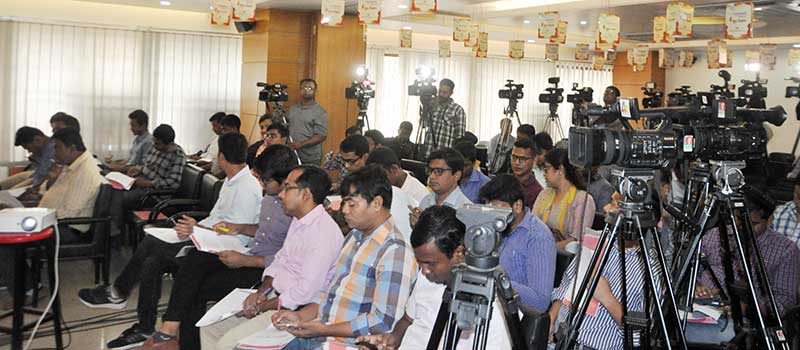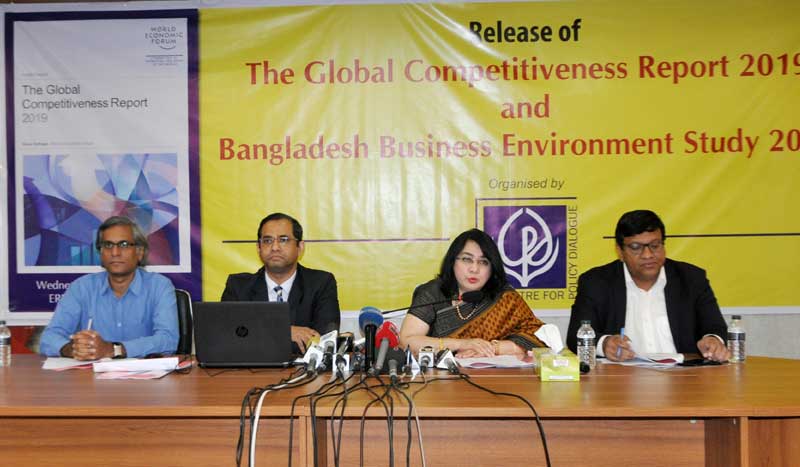
Bangladesh slides two notches down in the Global Competitiveness Index (GCI) 2019. The Global Competitiveness Report 2019, by the World Economic Forum (WEF), reveals that Bangladesh is at 105th position this year among 141 countries which was 103rd in 2018. Lack of improvement in governance and institutions, poor infrastructure, complex bureaucracy in financial system and business operations triggered this slide for Bangladesh. If to remain competitive in the current age of the fourth industrial revolution (4IR), the country needs to formulate strategies in reshaping its labour market through timely skills development and technological improvements. Above all, ensuring good governance in economic sector remains the key to realise the potential of its workforce.
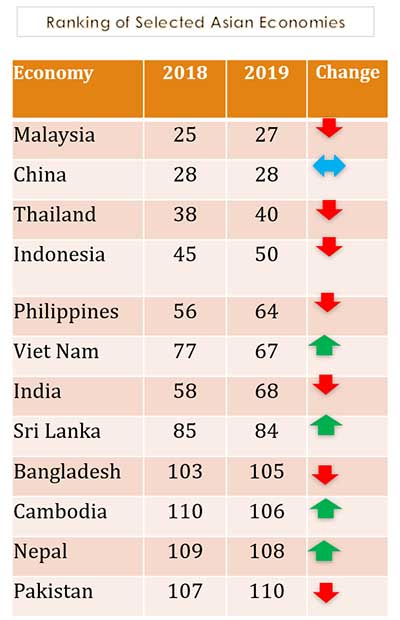 These major findings were revealed at a media release on Release of The Global Competitiveness Report 2019 and Bangladesh Business Environment Study 2019 on 9 October 2019 in Dhaka. The event was organised by Centre for Policy Dialogue (CPD) at the Economic Reporter’s Forum Auditorium as part of the global release of The Global Competitiveness Report (GCR).
These major findings were revealed at a media release on Release of The Global Competitiveness Report 2019 and Bangladesh Business Environment Study 2019 on 9 October 2019 in Dhaka. The event was organised by Centre for Policy Dialogue (CPD) at the Economic Reporter’s Forum Auditorium as part of the global release of The Global Competitiveness Report (GCR).
GCR is a cross-country benchmarking analysis of the factors and institutions that determine long-term growth and prosperity of countries. CPD has been partnering with the WEF, known as the Davos Forum, in preparing the Bangladesh report since 2001.
Dr Fahmida Khatun, Executive Director, CPD, delivered introductory remarks at the beginning of the event. Dr Khondaker Golam Moazzem, Research Director, CPD, presented the GCR 2018 to the media along with “Bangladesh Business Environment Study 2018”. Mr Towfiqul Islam Khan, Senior Research Fellow, and Mr Avra Bhattacharjee, Joint Director of Dialogue and Communication, CPD, were also present at the event.
In his presentation, Dr Moazzem explained Bangladesh’s major challenges of competitiveness during 2018. The overall score (52.1) of Bangladesh in 2019 is same as 2018. But the country achieved significantly lower points in 10 out of 12 pillars of the GCI. Significant deterioration in ranks observed in the pillars of macroeconomic stability (-7 positions), labour market (-6 positions), ICT adoption (-6 positions) and infrastructure (-5 positions).
Bangladesh’s position has improved in the pillars of product market (+4 positions) and health (3 positions). It is no wonder that the country has 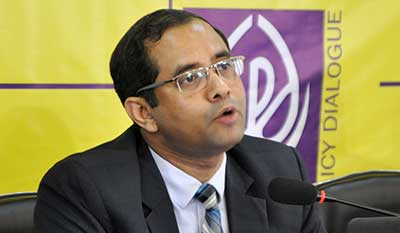 ranked among top 50 countries only in one pillar – market size (36th), which is because of the population and economic size of the country. On the other hand, in ranks below 100th in 9 other pillars.
ranked among top 50 countries only in one pillar – market size (36th), which is because of the population and economic size of the country. On the other hand, in ranks below 100th in 9 other pillars.
The analyses reveals that Bangladesh’s competitiveness has confronted four pronged challenges. These challenges are- a) traditional perennial institutional and infrastructure procedures; b) emerging problems of lack of preparedness for the 4IR technologies and addressing related concerns; c) emerging market rises such as rise in energy price, failure in urban planning, industrial pollution, rising under employment; and d) weakening of traditionally considered pillars of strengths – macroeconomic stability.
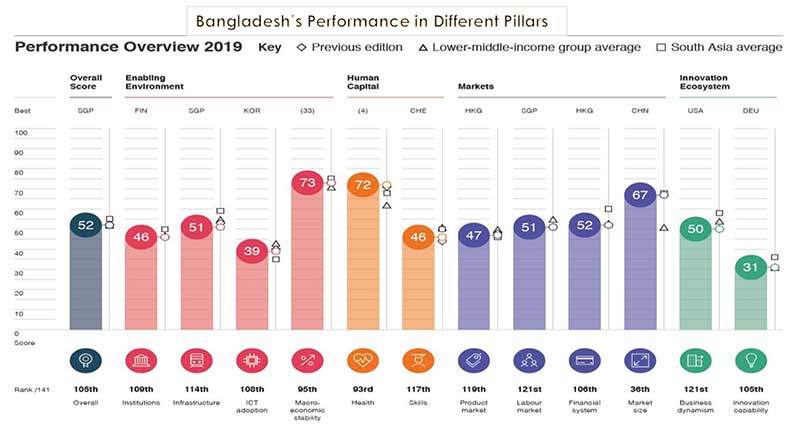
Dr Moazzem recommended that the country needs massive regulatory reforms in the areas of public services, financial sector, public sector enterprises with a view to ensuring efficiency, accountability and transparency. Technology and skill development need a fresh outlook and budgetary allocations needs to be increased. In this case, the various regulatory bodies and business facilitating public organisations need to be proactive and effective in delivering services to ensure completive environment in the country.
The briefing was followed by a question and answer session with journalists from print and electronic media.
